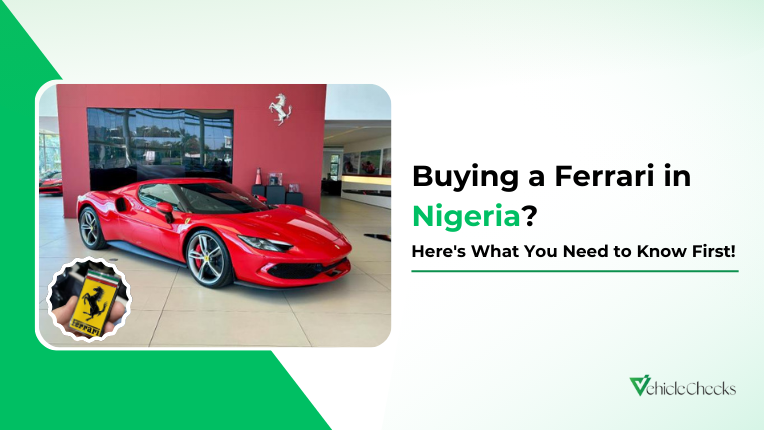With the Kenya used car market estimated at USD 1.23 billion in 2024 and expected to reach USD 1.39 billion by 2029, there is an increasing number of car owners, a booming market that has also attracted auto scammers and fraudsters. If you own a car or are a potential car buyer, you must know how to avoid being conned while buying a car in Kenya.
It’s important to understand the process of buying a car in Kenya. This includes understanding how the market works and what to look for in a car, including verifying the seller’s details and the car’s history. If you rush into purchasing a new or used car, you’re likely to be scammed or buy a car with hidden serious issues.
This guide will help you avoid scams when buying a car in Kenya and expose you to ways you could become a victim.
Nobody is Car Scam-proof
The car-buying process usually starts with the confidence that “I cannot get scammed,” but if careful consideration is not employed, it may end up dirty and you being a victim of a car scam. In an attempt to bypass brokers and import a car for yourself directly from Japan, some car shoppers go online to browse cars so they can save as much as Ksh100K.
Things might seem alright initially, but as soon as you wire some amount to prove your commitment to shipping a car to Kenya, you start experiencing a weird website error saying, “This page no longer exists.” Oh, sorry. They have just scammed you, switched URLs, and are waiting to catch the next victim to join the queue.
READ ALSO: Top 6 Car Selling and Buying Scams in Africa and How to Avoid Them
Understanding the Modus Operandi of Scammers
If you’re buying a used car in Kenya, be aware of the tricks scammers employ to defraud you of your hard-earned money or nice ride.
Identification Scams/Information Phishing
Here, deceptive individuals find a way to retrieve your personal information, like bank account details, ID copies to initiate identity theft, and KRA credentials. Once they have successfully stolen your identity, these scammers can come up with fake ownership papers and fake signatures so as to perpetuate their fraudulent activities like selling stolen cars using your information and getting finance with your ‘ghost’ vehicle as the collateral.
Purchasing a stolen vehicle
With the economic crisis across Africa, many car shoppers are switching to buying used vehicles instead of paying huge for new cars. This trend has strengthened potential scammers to trick used car buyers into buying stolen cars/cloned cars.
If you’re in the used car market to buy a car, you should conduct a stolen car check to verify if the car is a stolen or illegal property. You should make it hard for these unscrupulous people by getting as much information and records about the car even before any down payment is made. By conducting a vehicle history check, you arm yourself with valuable information to avoid getting harmed in the expansive used car market.
Fake Auction/classified Sites
Some websites now appear to sell cars just to lure potential used car buyers with ‘too good to be true’ prices—ridiculously low prices on a wide selection of cars with budget-friendly loan options. These fake websites clone real auction sites and renowned dealerships to sweet-talk undiscerning buyers into their web of scams.
Fake Car Buyers and Sellers
Some scammers may pose as buyers to deceive innocent car sellers to steal their vehicles or extract their personal information by using pressure tactics. They are always claiming they are busy and try to rush the process, cooking up a fake escrow account to make you believe the money will be released once the title transfer has been completed. Once this happens, you get bewildered to see the escrow service and car gone.
Other scammers prefer to pose as car sellers, a term called curbstoning. In curbstoning, these scammers become unlicensed dealers, pretending to be a private firms. Most of the time, the cars you think they are trying to sell are advertised online or at a legitimate dealership and are up for sale. In the long run, you will realize that the entity posing as the seller is fake and not the legal owner. Most times, they end up selling stolen or counterfeit cars to you. Beware!
False Car Adverts on Social Media
There are now thousands to millions of fake ads on the internet, targeting innocent buyers looking for good deals, just as it’s displayed, “better car deals near you” or “best car deals near you.” While there are still legitimate car ads, you need to watch out for the following:
- Crazy prices, avoid hefty discounts on a car on sale,
- Seller pressure strategy. They claim you need to deposit some money to reserve the car.
- Adverts or sellers do not provide crucial vehicle information like the VIN (vehicle identification number).
- Unprofessional websites, as indicated by poor design, using copyrighted images, grammatical errors, etc.
How To Avoid These Car Scams in Kenya
With the increasing car scams in Kenya, the big question is, “How do I protect myself from them?” Here is a checklist:
- Avoid Black Market Deals.
- Use only authorized and trusted car dealerships
- Be physically present before any deposit is made
- Steer clear of any unrealistic car offers
- Cut off dealers pressurizing or rushing you to secure or close the deal
- Use a traceable and secured payment method
- Verify vehicle history using our reliable chassis check service
Conclusion
Both car buyers and sellers must take precautions when exploring the market, especially for used cars, to avoid scams. If you suspect any car-related fraudulent activity, take the secure step of reporting it to the Directorate of Criminal Investigations. Don’t rush deals; verify all parties involved, and always pay attention to details before buying a used car in Kenya.





